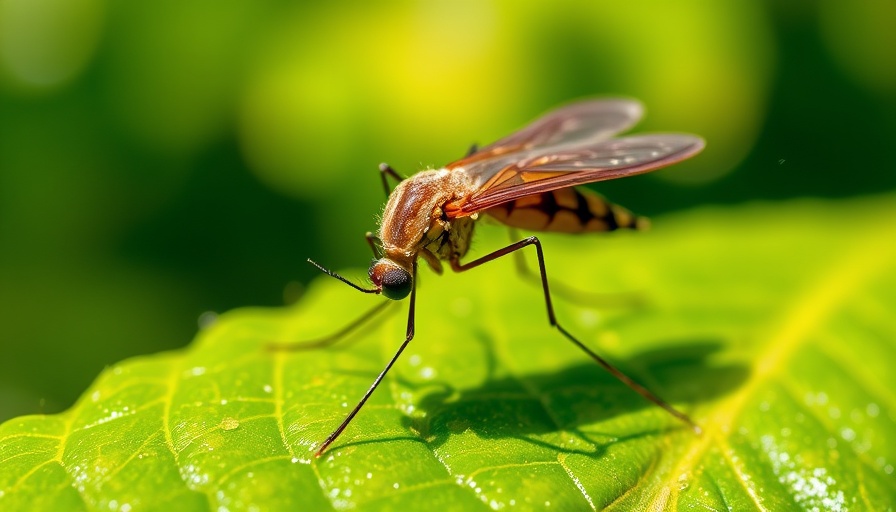
Why Choose Organic Pest Control?
In an age of increasing awareness about health and environmental safety, choosing organic pest control methods has never been more relevant. Unlike synthetic pesticides that can harm beneficial insects, contaminate soil, and pose health risks, organic solutions protect your garden's ecosystem. By focusing on sustainable practices, organic pest control not only safeguards your plants but also nurtures beneficial organisms that help create a balanced environment. This practice leads to long-term garden health, promoting vibrant biodiversity within your yard.
Common Organic Pest Control Methods
Homeowners in Bergen County can turn to several effective organic pest control methods to maintain their gardens without compromising safety. Here are three top techniques:
1. Beneficial Insects: Nature’s Pest Patrol
Not all insects are detrimental to your garden. Some are your most valuable allies in pest control. Introducing beneficial insects such as ladybugs, lacewings, and parasitic wasps can dramatically reduce pest populations. These insects prey on common garden nuisances like aphids and caterpillars, effectively controlling their numbers naturally.
Attract these helpful insects to your garden by planting nectar-rich varieties like dill, fennel, and yarrow. Alternatively, you can purchase them from local garden centers for immediate results, ensuring your garden remains balanced and healthy.
2. Neem Oil: A Natural Insecticide and Fungicide
Derived from the seeds of the neem tree, neem oil serves as a versatile solution for managing garden pests. It disrupts the life cycles of over 200 insect species while also functioning as a mild fungicide. This means you can tackle both pest infestations and fungal diseases like powdery mildew with one product.
To use neem oil effectively, mix it with water and a few drops of mild soap, then spray it directly on affected leaves. This eco-friendly option proves not only safe for your family and pets but also effective in maintaining your plant’s health.
3. Diatomaceous Earth: A Mechanical Insect Killer
Diatomaceous earth (DE) is a natural powder created from fossilized algae that works mechanically to control pests. While it feels soft, DE's sharp microscopic structure cuts through the outer layer of insects, leading to dehydration and death. This method is particularly effective against pests such as ants, fleas, and slugs.
For optimal results, apply food-grade DE to dry soil, focusing on the bases of plants where pests tend to gather. This non-toxic method is a fantastic way to keep your garden safe while targeting unwanted invaders.
Future Predictions for Organic Pest Control
As more homeowners become aware of the dangers posed by traditional pesticides, the demand for organic solutions is expected to rise. Experts anticipate a surge in innovative organic products that are not only effective but also environmentally friendly. The shift towards organic isn’t just a trend; it reflects a longstanding commitment to sustainability that resonates with gardeners today.
Practical Insights and Tips
When implementing these organic methods, it's essential to monitor your garden regularly for signs of pest activity. Early intervention can save your plants and minimize damage. Additionally, combining various organic strategies can enhance your overall pest control efforts, ensuring a thriving outdoor space that is safe for your family and the environment.
Ultimately, opting for organic pest control is a decision that cultivates not just your garden, but also a healthier planet. As you begin to embrace these methods, remember that every action contributes to the greater well-being of your yard and the ecosystem at large.
Your Path Towards A Healthier Garden
Ready to take the organic route in pest control? By embracing these methods, you’re choosing to protect not just your plants, but also your family and pets from potential harm. Stay informed and committed to sustainably managing your garden. For more customized advice tailored to your unique space, consider reaching out to landscape professionals who specialize in eco-friendly solutions.
 Add Row
Add Row  Add
Add 




Write A Comment